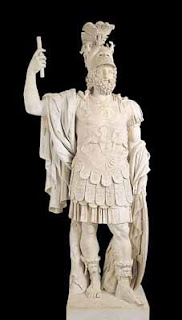
Last week, I was selected from a pool of 1.2 million LinkedIn users to attend a Town Hall meeting with President Obama. It was a strange and awesome experience, the full reasoning for which I can only estimate. What follows is my attempt at explaining.
On Monday, September 19 I received an email from a LinkedIn employee announcing that they were hosting a panel discussion on “economic opportunity” and asking if I would like to join. They were interested in me particularly because they saw that in recent years I had switched careers from a field that was shrinking (journalism) to one that was expanding (market research). If I was interested in attending, I was asked to briefly summarize my career history as well as my perspective on the current employment crisis. I did so.
The following day, LinkedIn reached out to me saying that they liked my responses and that they had some exciting news. The panel discussion to which they were inviting me was in fact a town hall meeting with President Obama. They asked if I was available the following Monday, September 26, and if so, what question I would ask the President.
At this point I was in a state of disbelief, but on the off chance it might be real—and might be the opportunity of a lifetime—I composed a question based on my experience shifting careers. I am of the mindset that education is the key to discovering new job opportunities—not only in the academic sense of learning new skills—but also in educating oneself on the opportunities available and how one can reconfigure their skill set to match. The original question went something like this:
What can federal government do in conjunction with US citizens to provide or promote education amongst adults interested in shifting careers? Is there something that can be done to raise awareness of the opportunities available to adults who are facing career changes?
Later that day, a lady from LinkedIn wrote to me and asked if we could talk on the phone. I was in the short list of people selected to ask the President a question. We chatted a little bit about this and that—mostly I think to verify that I wasn’t a nut case—and then she asked for some more personal information. Since I was in the running to be in the same room as the President, she needed to do a background check, see if I had a criminal history, verify my legal standing, etc. Wow, I thought, this is getting pretty serious. But she seemed nice and very sincere. I checked the whole thing out online and various sources confirmed that the President was supposed to be holding a town hall meeting in Palo Alto the following Monday in conjunction with LinkedIn. So I complied.
Two days later, I opened my email and quiver of fear/anxiety/excitement ran through my spine. I had been selected to attend the event! My question was in the top 6 of 8 to be asked.
I arrived at the Four Seasons Palo Alto Sunday evening half expecting someone to pop out from around the corner with a video camera saying that the whole thing had been a practical joke--but that never happened. Instead I met with a group of equally shocked/jazzed participants flown in from all over the country. Some were out of work, some were underemployed, some were veterans looking for career training, and some had successfully made a transition to a new career, like myself. We chatted together in a state of shocked disbelief. The LinkedIn team then helped us rehearse our questions for the President. After some revisions and a suggestion to add a little personal history to give my question context, I ended up with this:
Good Morning, Mr. President. Three years ago, I found myself out of work. Being unable to find gainful employment in my chosen field, which was journalism, I sought and landed a job in a field about which I knew little previously, but for which my skills and training were well suited—market research.
I have great faith in the American people’s ability to adapt—as long as we are empowered with the knowledge of burgeoning opportunities and career fields.
Is there a way the federal government can provide or promote education for adults looking to change careers—especially those who find the fields they’ve been trained for are either saturated or evaporating?
The morning of September 26, we were shuttled to the Computer History Museum in Mountain View. After going through airport-level security, we were admitted to an auditorium filled with LinkedIn employees, LinkedIn members such as myself, and a few random Silicon Valley luminaries (including this guy, who apparently was one of the original employees at Google). The head of the Secret Service for the event gave us a briefing.
“You can stand and sit as much as you want,” he said, “but do not leave your seat. I repeat—do not leave your seat. If you forget, someone will be there to remind you.”
Once we were all seated and locked in, the nerves really kicked in. The anticipation was palpable. Background music was playing over the PA system and between each song there were long, pregnant pauses when the entire crowd involuntarily silenced. The collective bated breath of 100 people generated a crazy energy in the crowd. It was almost as though someone had set a spell on everyone, and all we could do was look at each other incredulously and shake our heads. The spell would finally be broken when someone dropped a camera or the next song started or whathaveyou, and we giggled at our own nervousness.
After a good hour of waiting in our seats, the CEO of LinkedIn came in, gave his speech, and introduced the President. The erupted in cheers—partially because we were glad to see the guest of honor and partially because the tension of his arrival had finally been released.
Seeing Obama in person is extraordinary. He is a fantastic performer. Poised, well spoken, unflappable—in addition to handsome and very well dressed—Obama made a fantastic impression. It was one of the best performances I’ve ever seen, in or out of a theater. He is a commanding orator, and when he speaks, its difficult not to stop everything and listen. It’s no wonder he’s the President—he’s a very, very likable person. When you think about it—that’s what politics is, really. People have problems of all sizes. They have questions, worries, concerns, fears. What’s going to happen to my family? What’s going to happen to my town, my job, my health, my country? The President is someone who is trained to answer all those questions—and Obama does it with style. You walk away feeling like, “everything’s going to be fine. He’s in charge.” Needless to say, I was impressed.
In the end, I didn’t get to ask my question. They told us from the start that depending on the length of the President’s answers, he might not get to all of us. Nevertheless, while answering someone else’s question, he did address my topic. He stated that Americans need to adapt to the present job climate, and that there were education opportunities the government would be endorsing. He promoted the American Jobs Act, which he recently put to Congress, which (if passed) includes mandates for “innovative job training” and incentives for companies to hire long-term unemployed workers, amongst a host of other statutes.
I might not have had the chance to “speak” with the President directly, but I was at least in the same room with him. That was enough for me. It was an amazing experience and one I’ll never forget.









